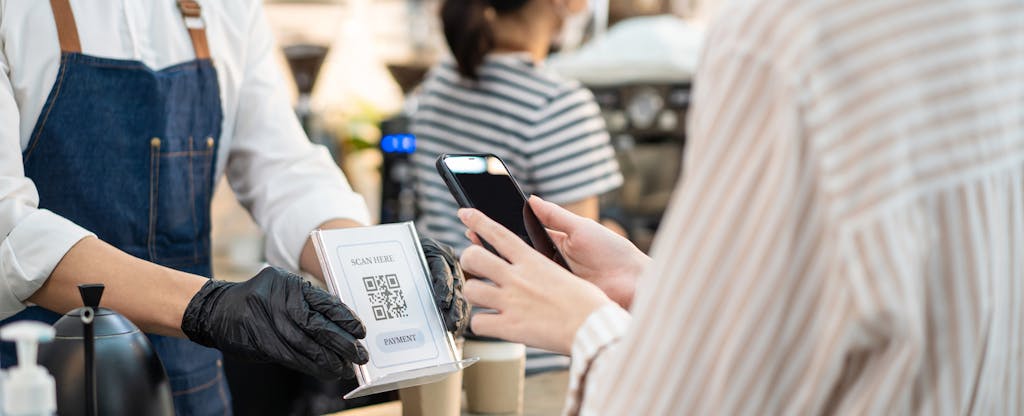In a Nutshell
The IRS is requiring payment platforms like Venmo and PayPal to send 1099-K forms to sellers who received more than $5,000 in payments in 2024. The agency plans to introduce a $2,500 threshold for 2025.If you accept business payments from apps like Venmo or PayPal, you may be getting a new tax form in early 2025.
After a two-year delay, the IRS is requiring services like Venmo, Cash App and other online payments platforms to issue a 1099-K — the form documenting income received via third-party networks and from payment cards — to anyone who received more than $5,000 of total payments in 2024.
As part of a phased-in approach by the IRS, the reporting threshold will be lowered to earnings of more than $2,500 in 2025, then more than $600 in 2026.
The new rule doesn’t apply to personal payments between friends and family for things like shared meals or bills. It’s aimed at people with side jobs or small businesses who collect money online and may not be reporting the income as required.
Here’s what to know about the updated 1099-K rules, plus tips to consider ahead of the changes.
New requirements for 1099-K reporting
The IRS, which estimates unreported income of nearly $166 billion through payments on peer-to-peer apps like Venmo and PayPal, is using the new requirement to help close this “tax gap,” or money owed to the government that goes unpaid. The change is being phased in beginning tax year 2024 as part of the American Rescue Plan Act of 2021.
Under IRS plans to phase-in the new rule, payment processors like Cash App, Venmo and PayPal along with platforms like eBay and Etsy will have to send a 1099-K tax form to users with more than $5,000 in any number of transactions for goods or services in 2024.
Making sense of Form 1099-K
You can expect to receive a Form 1099-K from third-party networks or financial institutions for income you earned through the platforms the previous year. Under IRS rules, you’re supposed to report any income listed on your Form 1099-K from your business — including things like selling items on eBay or mowing lawns in your neighborhood — on your income tax return.
Who is required to file?
If you earn income outside of a full-time job and get paid via Venmo, PayPal or Cash App, or other types of third parties, you should refer to your Form 1099-K to determine what income to declare.
This includes payments for personal items you sold, services you provided or property you rented through …
- Peer-to-peer payment platforms or digital wallets
- Online marketplaces
- Craft or maker marketplaces
- Auction sites
- Car sharing or ride-hailing platforms
- Real estate marketplaces
- Ticket exchanges or resale sites
- Crowdfunding platforms
- Freelance marketplaces
Gift money from friends and family or reimbursements for personal expenses don’t have to be reported since they aren’t considered taxable income.
Zelle doesn’t report to IRS
Unlike its competitors, Zelle facilitates direct bank-to-bank transfers — and the company says it won’t be providing 1099-K forms to customers.
But if you’re using Zelle for business payments, you’re still required to report any income you receive via the platform that may be taxable — if you’re unsure what to report, it’s a good idea to reach out to a tax specialist.
How to prepare to file taxes
Because of the new IRS requirement, more taxpayers are likely to receive Form 1099-K for tax year 2024. You can be proactive by carefully tracking your transactions and planning for them to be reflected as part of your tax bill.
Save for taxes or make payments
Income taxes must generally be paid as you earn or receive income throughout the year, either through withholding or estimated tax payments. If you’re in business for yourself, you generally need to make estimated tax payments.
Keep good records
If you expect to receive a Form 1099-K, be sure to keep updated records of your transactions, balance sheet and other financial documents. Otherwise, inaccuracies when filing could trigger an IRS audit.
If you receive some or even all of your business income through a peer-to-peer payment platform, it’s a good idea to set up separate third-party platforms for business and personal transactions. If the transactions are intermingled, it will be tougher to separate business and personal payments.
Next steps
The new reporting requirement planned for tax year 2024 is expected to generate a flood of additional 1099-K forms as the lower reporting threshold affects more taxpayers. If you’re a gig worker or own a small side business, you may want to consider reaching out to a professional bookkeeper or accountant to help understand what your tax liability might be.
If you take steps now to prepare, you can be more confident about filing an accurate return and avoid processing delays.


